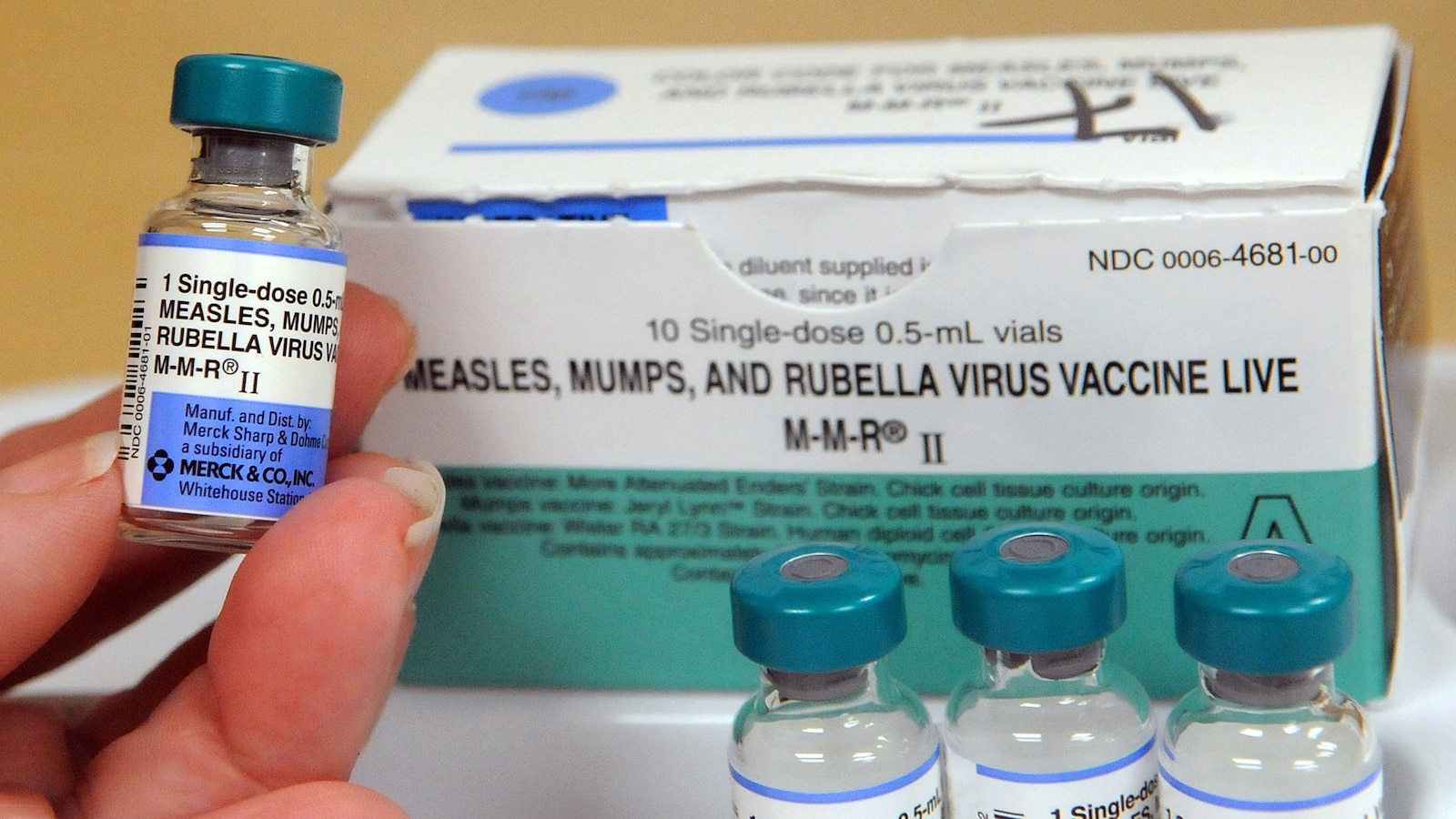The Centers for Disease Control and Prevention (CDC) is warning clinicians to remain on alert for measles cases due to a growing number of infections.
Between Dec. 1, 2023, and Jan. 23, 2024, there have been 23 confirmed cases of measles including seven cases from international travelers and two outbreaks with five or more infections each, according to an email sent this week.
Cases have been reported in Pennsylvania, New Jersey, Delaware and the Washington, D.C. area so far.
Most of these cases were among children and adolescents who had not been vaccinated against measles, despite being eligible.
According to the CDC, most measles cases in the U.S. occur when unvaccinated or partially vaccinated Americans travel internationally, contract the disease and then spread it to those who are unvaccinated upon their return.

In this undated file photo, a child is shown with red rash spots from measles.
STOCK IMAGE/Getty Images
The federal health agency said the increase in cases in the U.S. reflects a global rise in infections and that there is a “growing global threat.”
“Due to the recent cases, healthcare providers should be on alert for patients who have: (1) febrile rash illness and symptoms consistent with measles (e.g., cough, coryza, or conjunctivitis), and (2) have recently traveled abroad, especially to countries with ongoing measles outbreaks,” the CDC wrote in its message.
If health care workers suspect a patient has measles, the CDC says the patient should be isolated immediately for at least four days from when symptoms appear and local or state health departments should be notified. The patient should then be tested, post-exposure prophylaxis should be provided to close contacts and all contacts who are not up to date on their measles vaccinations should be vaccinated.
Measles is a very contagious disease with the CDC saying every individual infected by the virus can spread it to up to 10 close contacts if they are unprotected including not wearing a mask or not being vaccinated.
Complications from measles can be relatively benign, including rashes, or they can be much more severe, such as viral sepsis, pneumonia, or brain swelling.
The CDC says anybody who either had measles at some point in their life or who has received two doses of the MMR (measles, mumps, rubella) vaccine is protected against measles.
One dose of the measles vaccine is 93% effective at preventing infection if exposed to the virus. Two doses are 97% effective.
In 2000, measles was declared eliminated from the U.S., thanks to a highly effective vaccination campaign, but outbreaks have popped over the last few years in unvaccinated pockets of the country.
Between November 2022 and February 2023, 85 children were sickened with measles in Ohio, 80 of whom were unvaccinated.
In California, an unidentified person with measles who visited Disneyland caused an outbreak, infecting 125 people between December 2014 and February 2015.

